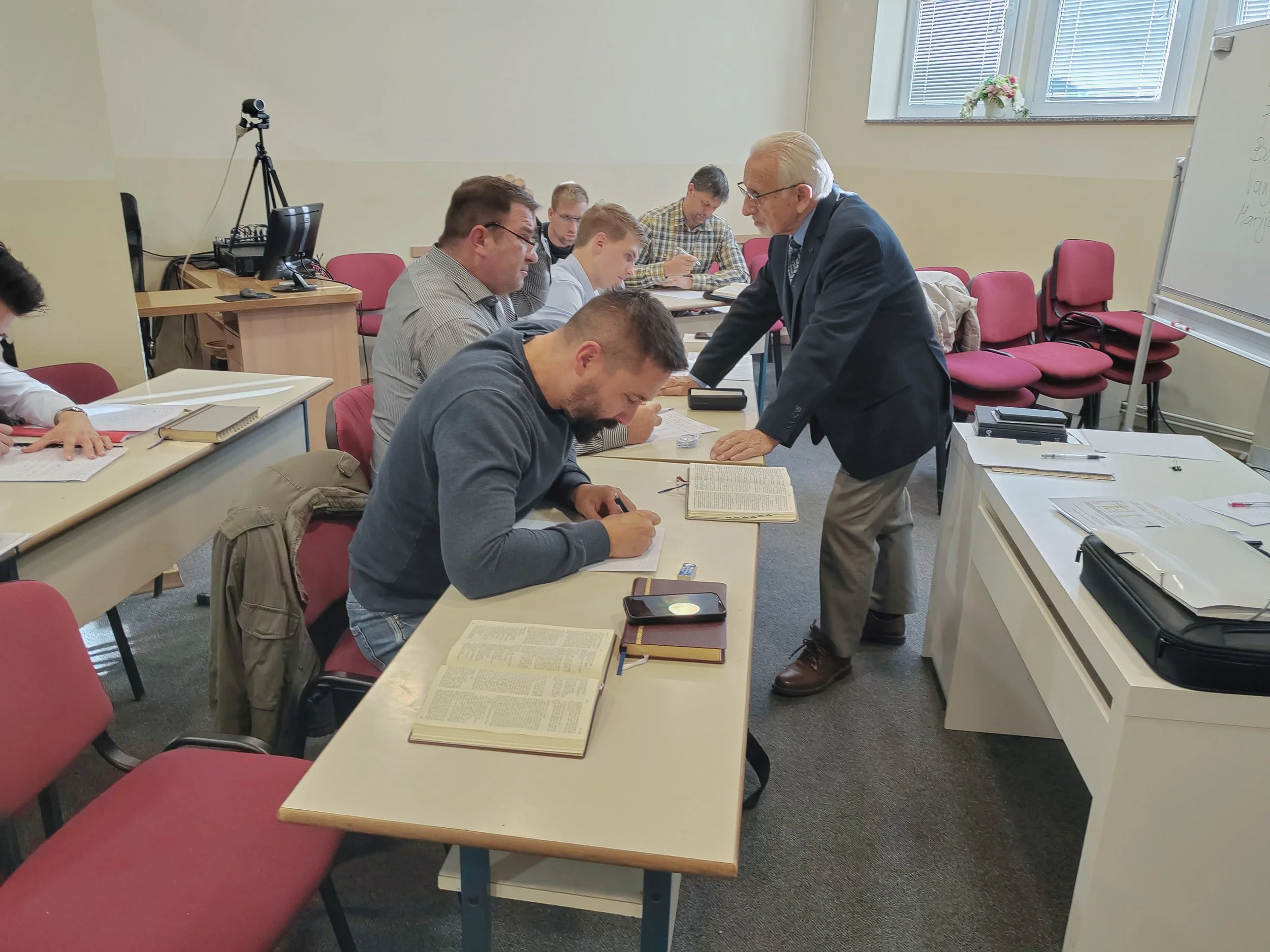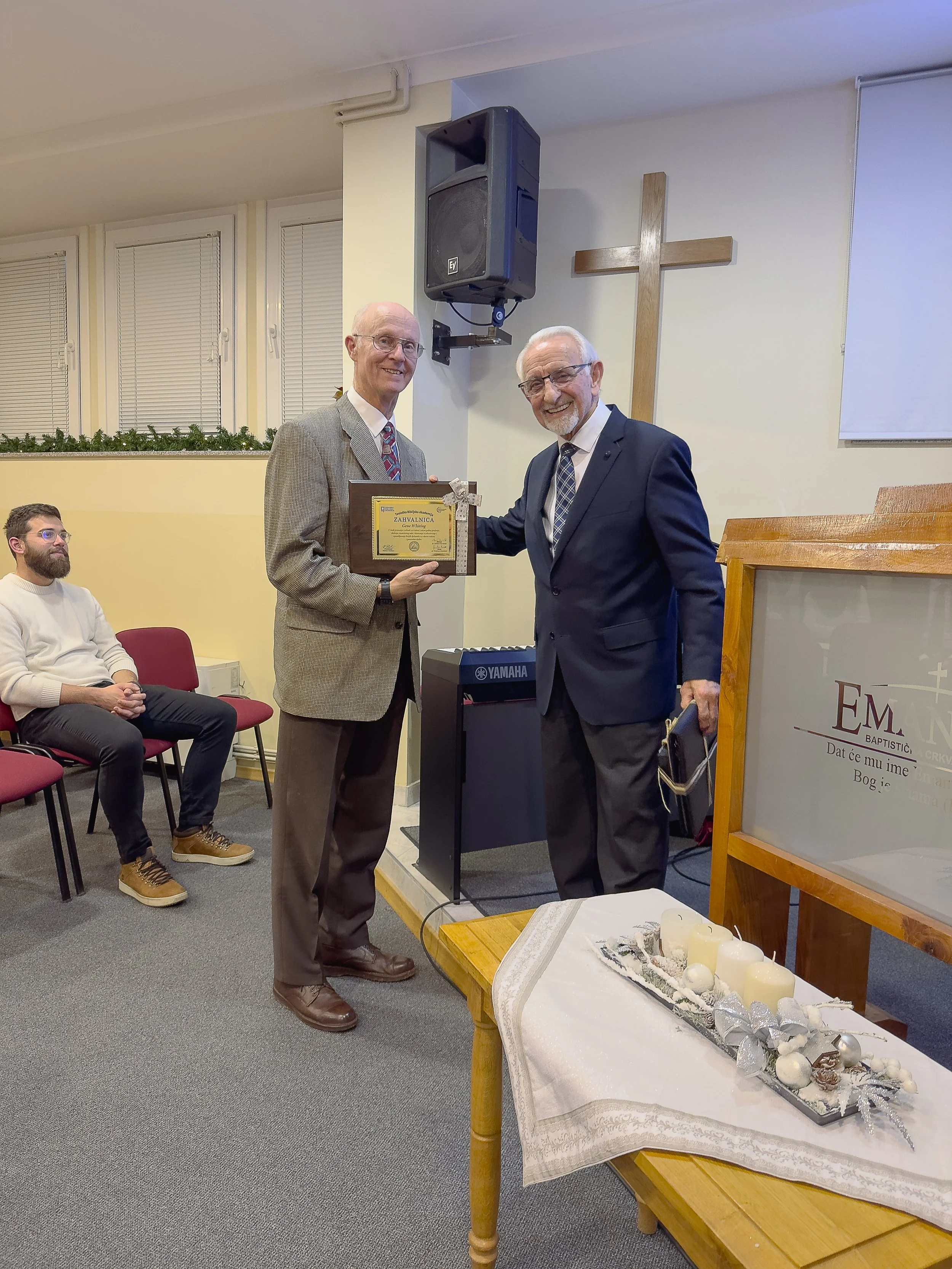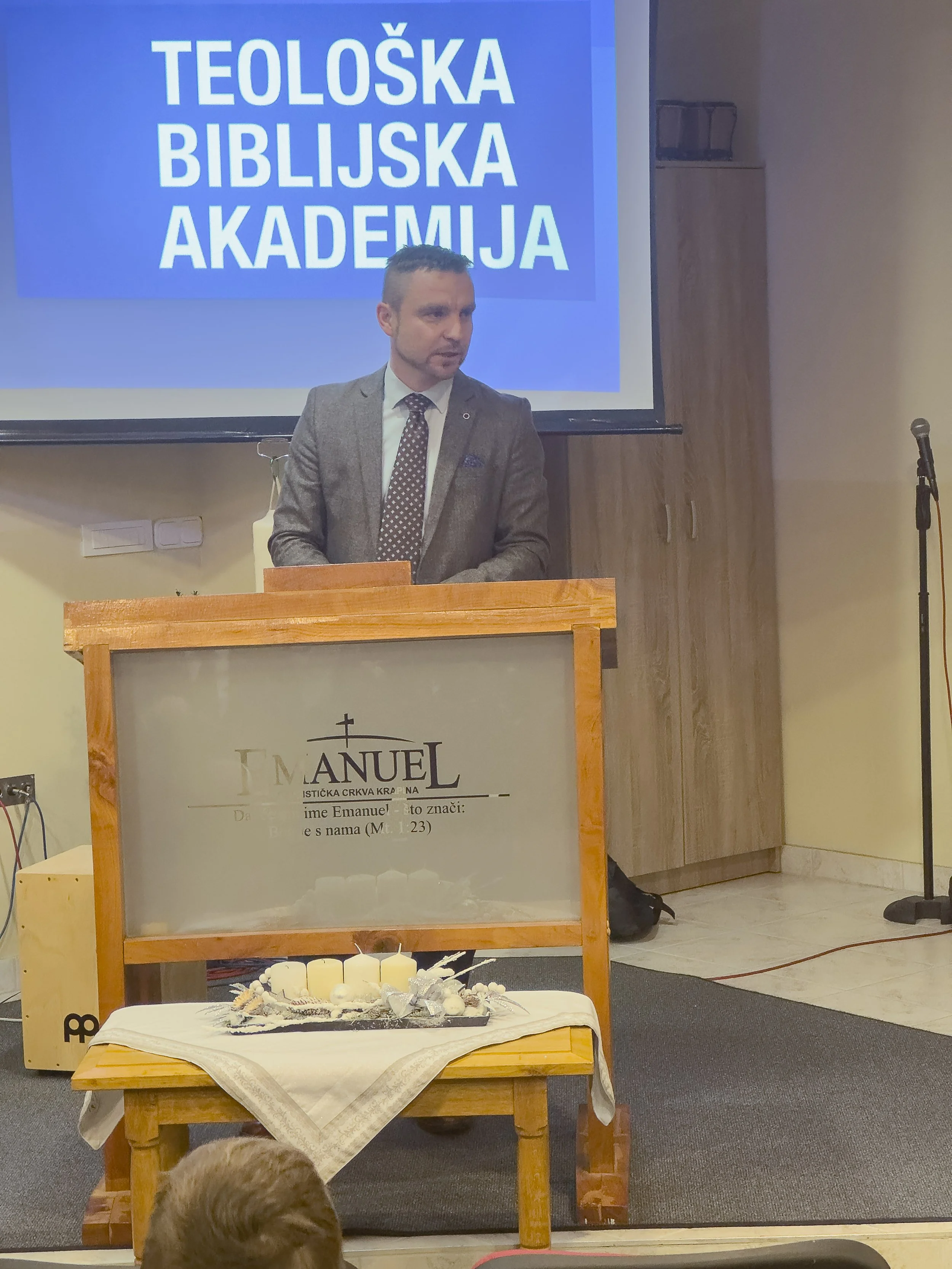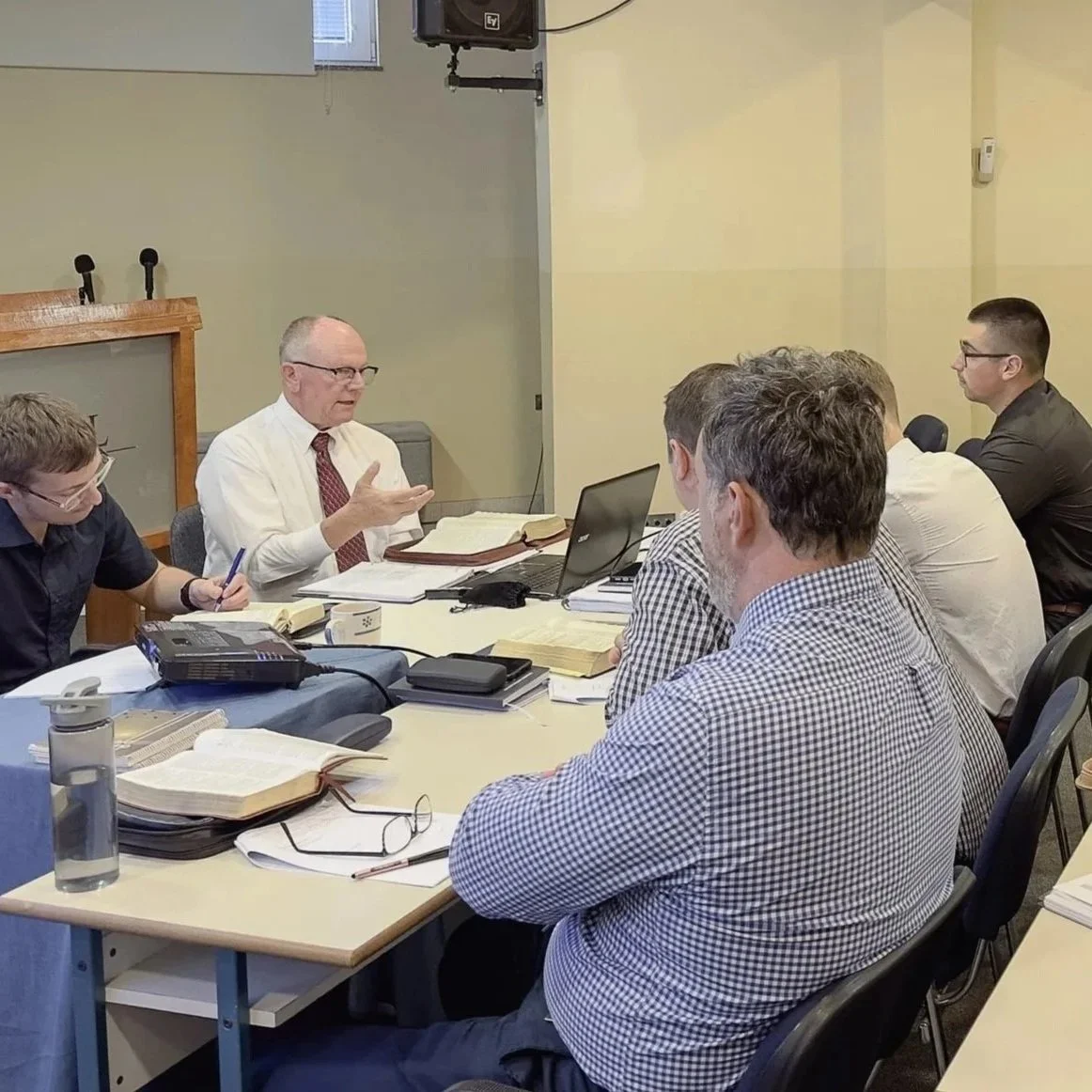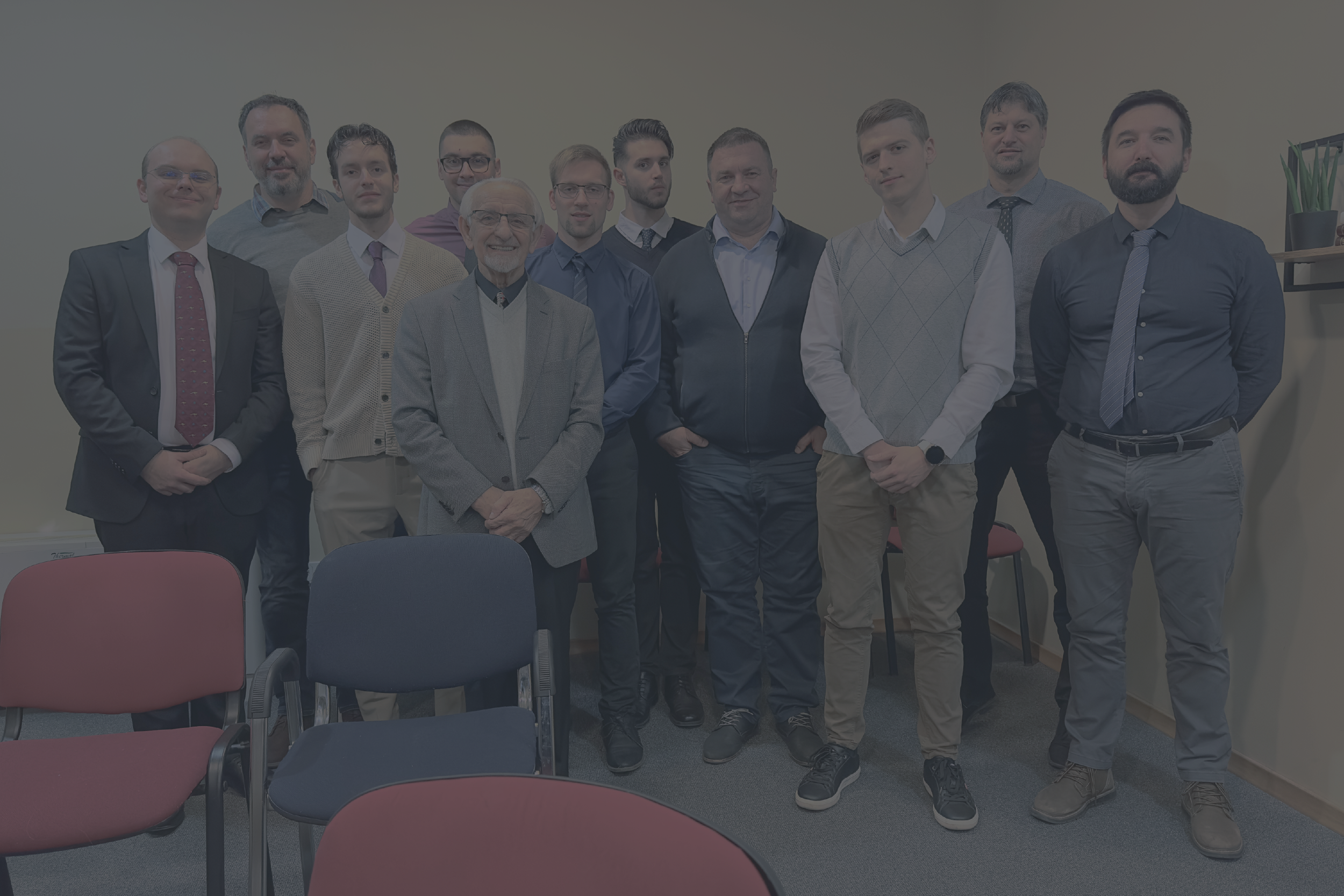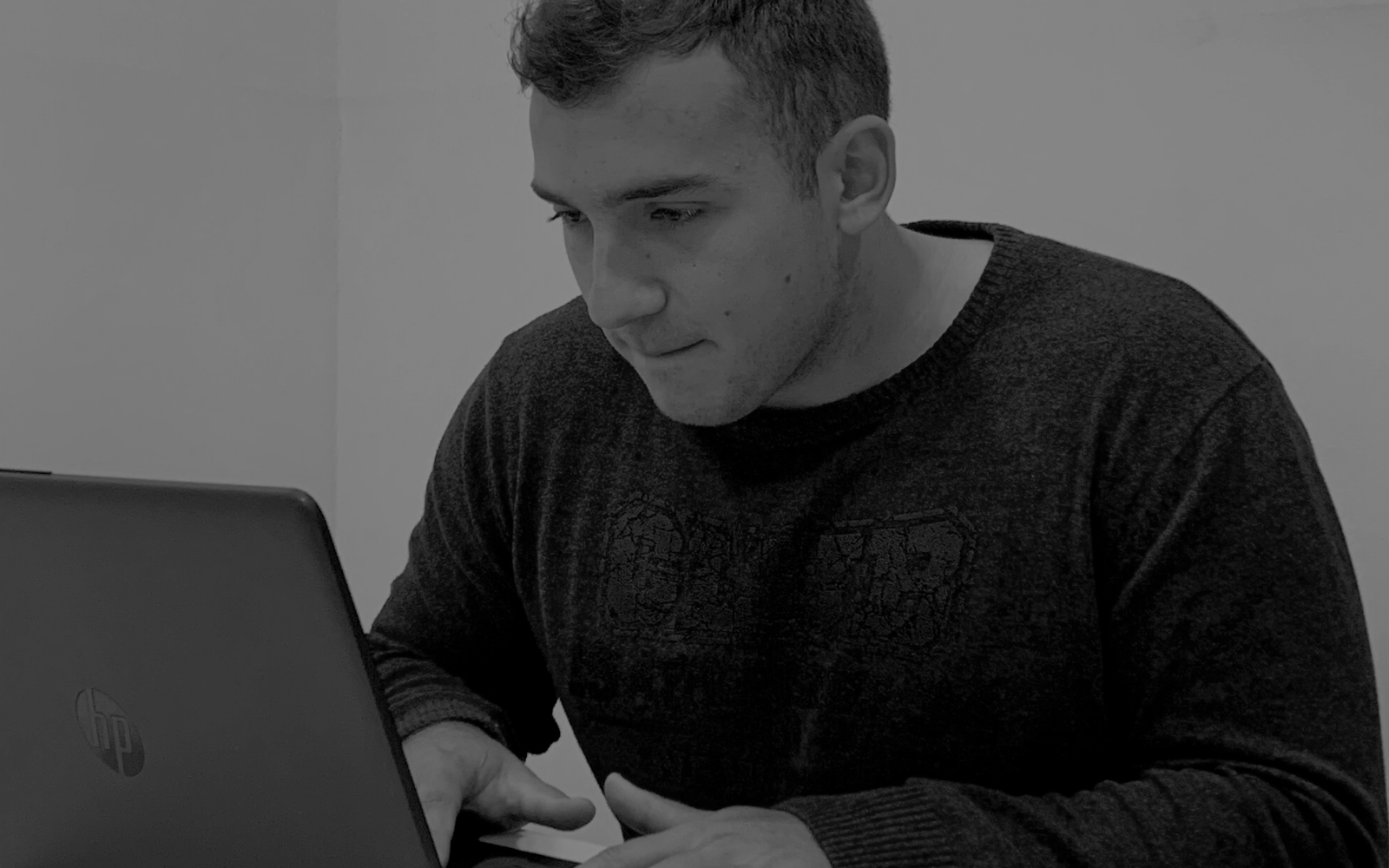Croatia
Theological Biblical Academy
MEMBER SCHOOL
Number of Graduates: 70 | Churches Impacted: 45
Equipping believers with biblical knowledge, interpretive skill, and devotion to God’s Word to prepare them for ministry in the Church.
MISSION
KEY DETAILS ON THEOLOGICAL BIBLICAL ACADEMY
About
-
The primary purpose of TBA is to be helping churches by means of training participants as servants of the same, so that they acquire biblical-theological knowledge with the goal that they become skilled interpreters of the Holy Scriptures, that they be completely dedicated to scriptural values and that they develop skills which will help them to be completely equipped for the "work of ministry" (Eph.4:11-12).
-
Plan of Research (or: Studying)
The plan of research (or: studying) of TBA is based in the Holy Scriptures, with the purpose to influence the spiritual, academic, personal and professional development of participants. The plan of research (or: studying) of TBA will also be developing a critical mind toward all academic disciplines, with which the same will have engagement.
Knowledge
TBA endeavors to help participants achieve the necessary knowledge and understanding of the Holy Scriptures, that is, their content and meaning as it is written in the infallible Word of God, whose rules are inerrant for faith and practice of Christians. Simultaneously, TBA develops the participants' capability as independent and constructive thinkers for all areas of spiritual, church and mission ministries.
Skills
TBA is committed to help participants develop the skills of studying the Holy Scriptures, of preaching, of teaching, of mission, of church administration and of communicating the Gospel.
Character
The statement of faith and the plan of research (or: studying) of ATBR endeavor to help participants to develop character and conviction which will reflect Jesus Christ (Mk.10:45 Phil.2:5-8).
Spiritual Leaders
TBA, conscious of its spiritual, biblical and reformation heritage, desire to help participants to become spiritual leaders of conservative-Baptist and like-minded churches, of schools and mission societies at home and abroad.
-
We follow a traditional format of weekly classes, held Tuesday through Friday, and are in the process of implementing Canvas as our learning platform. Professors usually provide printed course materials to their students. Each semester, students participate in a “Christian Practice” course, which requires them to serve in their local communities. As part of their training, students also preach at least four times in preaching labs. To graduate, students must successfully complete all courses and maintain a good testimony from their local church.
Training
-
Bachelor of Theology (B.Th.): A three-year program that focuses on Bible Survey, Theology, Practical theology (evangelism, mission, shepherding), Biblical languages, hermeneutics, and homiletics.
-
Founded in 1981 in Vienna, Austria as the Evangelical Biblical Institute, the school relocated to Croatia in 1998, becoming the Theological Biblical Academy (TBA) and resuming full-time residential classes in 2000. Since its beginning, it has produced over 80 graduates from one- to four-year programs, many of whom serve across Croatia and in nine other European countries. Nearly half of the pastors in the Baptist Union of Croatia are TBA graduates or former students, who also preach or teach in 40% of Croatian Baptist churches - 25% of which have no pastor. Faculty, graduates, and former students are involved in eight church-planting projects in three countries, resulting in two new churches. TBA has published over 30 books, with professors and graduates contributing additional works and pursuing advanced degrees.
-
We seek to create church-based theological education hubs in areas where our graduates serve, strengthening a network of like-minded churches with the shared goal of planting new churches in Croatia and other countries in this region.
Context
-
Population: 4,150,116 (2024 est.)
Ethnic Groups: Croat 91.6%, Serb 3.2%, other 3.9% (including Bosniak, Romani, Albanian, Italian, and Hungarian), unspecified 1.3% (2021 est.)
Languages: Croatian (official) 95.2%, Serbian 1.2%, other 3.1% (including Bosnian, Romani, Albanian, and Italian) unspecified 0.5% (2021 est.) major-language sample(s): Knjiga svjetskih činjenica, nužan izvor osnovnih informacija. (Croatian). The World Factbook, the indispensable source for basic information.
Religions: Roman Catholic 79%, Orthodox 3.3%, Protestant 0.3%, other Christian 4.8%, Muslim 1.3%, other 1.1%, agnostic 1.7%, none or atheist 4.7%, unspecified 3.9% (2021 est.)
Refugees and Internally Displaced Persons
Refugees (Country of Origin): 24,525 (Ukraine) (as of 29 February 2024)
Stateless Persons: 2,889 (2022)
Note: 843,010 estimated refugee and migrant arrivals (January 2015-September 2023)
Stats from CIA.gov
-
Once a part of the Austro-Hungarian Empire, Croatia became an independent nation at the close of World War I. In 1918, the peoples of Croatia, Serbia, and Slovenia merged to become a nation later known as Yugoslavia. In the aftermath of World War II, Yugoslavia became a federal independent communist state composed of six socialist republics. Croatia, led by Josip Broz (TITO) was one of these. Despite its declaration of independence from Yugoslavia in 1991, it would take four more years of bitter combat to clear Croatian lands of Yugoslavian military occupation. The impact of these conflicts has created deep socioethnic divides up to the present day. In 2009, Croatia joined NATO and several years later became a member of the EU in 2013. Over 90% of Croatians identify as Christian, but Evangelicals make up less than 1% of this statistic.
Compiled from CIA.gov, Operation World, and Encyclopedia Britannica
HOW TO PARTNER
Support Theological Biblical Academy
LEARN MORE


